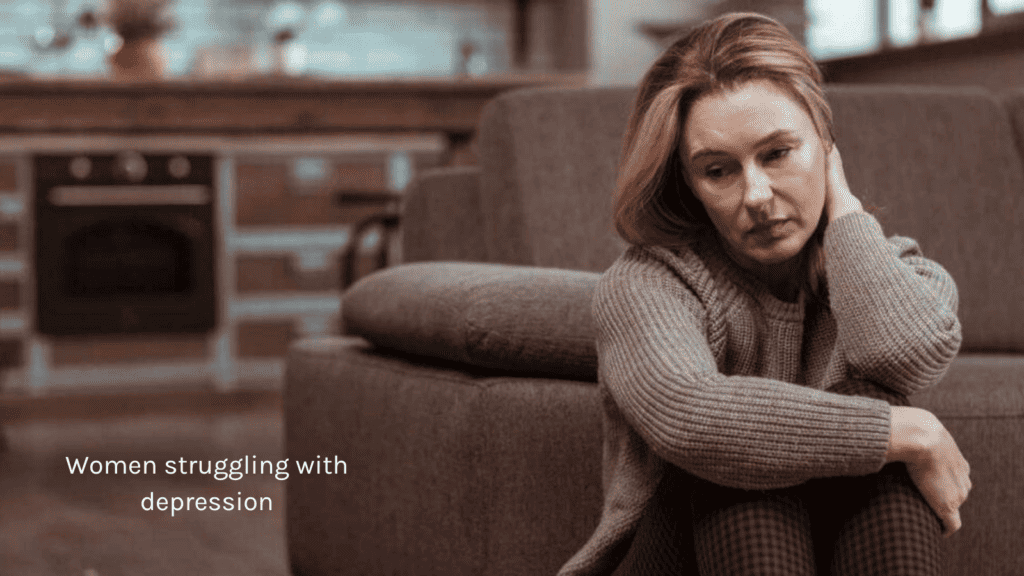In the heart of West Palm Beach, FL, Olympic Behavioral Health provides a comprehensive Depression Treatment Program dedicated to helping individuals overcome the challenges of depression and substance use disorder. Recognizing the deep impact of this condition on both emotional and physical well-being, our program is meticulously designed to offer empathetic and expert care tailored to each person’s unique needs.
At Olympic Behavioral Health, our approach to treating depression combines clinical excellence with innovative therapies. We understand that depression manifests differently in each individual, and our treatment plans reflect this diversity, ensuring personalized care for every client. Our team of mental health professionals creates a supportive and understanding environment where individuals can safely address the root causes of their depression, develop effective coping mechanisms, and gradually rebuild a sense of optimism and joy in their lives.
Located in the serene surroundings of West Palm Beach, our treatment facility offers an ideal setting for recovery and introspection. Whether you are dealing with intense sadness, a lack of interest in once-enjoyable activities, or other symptoms of depression, our dedicated team is here to support you through this journey, helping you regain control and move towards a more positive and fulfilling life.

Symptoms of Depression
It is important to be aware of the symptoms associated with depression, as early recognition and treatment can make a significant difference in your recovery. Here are some common symptoms you may experience if you are dealing with depression:
- Sleep disturbances: Depression may cause you to experience difficulty falling asleep, staying asleep, or even sleeping excessively.
- Agitation and anxiety: Feelings of restlessness, irritability, and a sense of constant worry can often accompany depression.
- Difficulty thinking and concentrating: Depression can impair your cognitive abilities, making it hard to focus, make decisions, or remember things.
- Changes in appetite: You may notice significant changes in your appetite, leading to weight loss or weight gain.
- Thoughts of dying or suicidal ideation: Depression can cause overwhelming feelings of hopelessness and thoughts of death or suicide.
- Restlessness: It is common to feel a sense of inner turmoil and restlessness when dealing with depression.
- Low self-esteem and feelings of guilt: Depression can lead to a negative perception of oneself, resulting in feelings of worthlessness and excessive guilt.
- Headaches: Physical symptoms such as headaches or migraines can be associated with depression.
- General lack of energy or interest in activities once enjoyed: Depression often zaps your energy levels, making it difficult to engage in activities that you once found enjoyable.
Causes of Depression
Depression is a multifaceted condition influenced by various factors. Understanding the potential causes can provide valuable insights into its development. Here are some common causes associated with depression:
- Traumatic events: Going through traumatic experiences, such as abuse, loss, or a major life change, can trigger depression.
- Substance abuse: Alcohol or drug abuse can contribute to the development of depression as they affect brain chemistry and exacerbate negative emotions.
- Chronic illness: Dealing with a chronic illness or facing a debilitating health condition can lead to depression due to the physical and emotional toll it takes.
- Severe stress: Prolonged periods of intense stress, whether related to work, personal life, or other circumstances, can contribute to the onset of depression.
- History of depression in the family: If you have a family history of depression, you may be more genetically predisposed to developing the condition.
- Brain chemistry: Imbalances in neurotransmitters such as serotonin, norepinephrine, and dopamine can play a role in the development of depression.
- Hormonal imbalances: Changes in hormone levels, such as during pregnancy, menopause, or with thyroid disorders, can contribute to depressive symptoms.
Why You Should Get Depression Treatment
Dealing with depression can have a significant impact on various aspects of your life. Seeking treatment is essential in order to address the following potential consequences:
- Problems in personal, professional, and romantic relationships: Depression can strain your relationships, leading to difficulties in communication, trust, and intimacy.
- Physical health issues, such as malnutrition or obesity: Depression can disrupt your appetite and eating habits, leading to weight loss or gain. It can also contribute to neglecting self-care routines, leading to various physical health issues.
- Feeling or becoming isolated from society: Depression can create a sense of isolation, making it challenging to engage with friends, family, and your community.
- Self-harm: Individuals with depression may resort to self-harming behaviors as a way to cope with emotional pain.
- Suicide attempts or suicidal thoughts: The risk of suicide is a serious concern in individuals with depression, making professional treatment crucial for suicide prevention.
- Substance abuse: Many people with depression turn to drugs or alcohol as a way to self-medicate and numb their emotional pain.
- Anxiety disorders: Depression and anxiety often coexist, and without proper treatment, symptoms of both conditions can worsen.
Our Approach to Treating Depression and Co-occurring Substance Use Disorder
At Olympic Behavioral Health in West Palm Beach, FL, we adopt a comprehensive approach to treat depression alongside co-occurring substance use disorders. Understanding the complex interplay between these two conditions is crucial in crafting an effective treatment plan.
Integrated Treatment Strategy
We recognize that when depression and substance abuse coexist, they often exacerbate each other, creating a cycle that can be challenging to break. Our integrated treatment strategy addresses both conditions simultaneously, acknowledging that treating one without the other can lead to incomplete recovery and a higher risk of relapse.
Personalized Care
Every individual’s experience with depression and substance use is unique. Our team develops personalized treatment plans that cater to the specific needs and circumstances of each client. This tailored approach ensures that we address all aspects of the individual’s health, providing the most effective and holistic care possible.
Experienced Professional Team
Our treatment team comprises mental health and addiction specialists, including therapists, counselors, and medical professionals. This multidisciplinary team works collaboratively to provide a range of therapies and interventions. Their combined expertise allows us to offer comprehensive care that covers all bases – from medical detoxification and psychiatric care to individual and group therapies.
Evidence-Based Therapies and Supportive Care
We employ a variety of evidence-based therapies to treat depression and co-occurring substance use disorders. These may include cognitive-behavioral therapy (CBT), dialectical behavior therapy (DBT), motivational interviewing, and other proven therapeutic techniques. Alongside these, we offer supportive care services like nutritional counseling, holistic therapies, and wellness activities, all designed to promote overall health and well-being.
Ongoing Support and Relapse Prevention
Understanding the journey to recovery is ongoing; we place a strong emphasis on aftercare planning and relapse prevention. This includes equipping our clients with the tools and strategies necessary to maintain their progress post-treatment and offering continued support through outpatient services or support groups.
In summary, our approach at Olympic Behavioral Health is to provide a nurturing, understanding, and multi-faceted treatment environment for those dealing with depression and co-occurring substance use disorders. We strive to offer the guidance, tools, and support needed to overcome these challenges and pave the way for a healthier, more fulfilling life.
Olympic Behavioral Health’s Depression and Co-occurring Substance Use Treatment Programs
West Palm Beach, FL, is not only a destination for its sunny weather and beautiful beaches but also a hub for top-tier mental health and addiction treatment. Olympic Behavioral Health stands out in this landscape, offering specialized treatment programs for depression, including co-occurring substance use disorders.

Drug and alcohol addiction are often co-occurring with depression, so it’s critical to get help for both conditions.
Depression and drug or alcohol addiction can often appear as dual diagnoses (1), making it especially important for individuals to get help for both conditions. With more and more people becoming addicted to substances such as alcohol, methamphetamine, opioids, heroin, cocaine, and fentanyl, drug rehabilitation centers must acknowledge dual diagnosis and treat depression alongside addiction. Knowing what depression feels like and finding the right treatment plan are key in managing this medical condition long-term. Programs like Partial Hospitalization Programs (PHP) or Intensive Outpatient Programs (IOP) are the most effective dual diagnosis treatment methods in an addiction treatment center.
Professional help is available when dealing with the dual diagnosis of depression and substance abuse disorder (SUD). Addiction treatment centers are experienced in dual diagnosis. They can offer comprehensive programs that include therapies, including detox, residential treatment, PHP, IOP, and ongoing care for an individual’s dual diagnosis. With the right dual diagnosis program, people with SUD can start on a healthier journey with fewer pitfalls along the way.
If you or someone you know is struggling with depression and addiction to drugs or alcohol, quality care from a team of professional experts is the best way to restore balance.
Treatment Approaches for Complex Mental Health and Addiction Challenges
Our facility provides a range of treatment options, understanding that depression is a complex mental health condition that often intersects with addiction. We focus on treating the whole person, not just the symptoms, utilizing a blend of therapy and medication management. Our treatment plans are tailored to each individual’s needs, offering:
- Partial Hospitalization Programs (PHP)
- Intensive Outpatient Programs (IOP)
These programs specialize in addressing the unique challenges of co-occurring depression and substance use. Whether you are experiencing common signs of depression such as low energy, sleep disturbances, mood swings, or a pervasive sense of emptiness, or dealing with high-functioning depression, Olympic Behavioral Health is equipped to provide the necessary care. Our approach is comprehensive, considering both the psychological and physiological aspects of depression and addiction.
At Olympic Behavioral Health in West Palm Beach, we offer more than just treatment; we provide a pathway to a healthier, more balanced life. Our experienced team is committed to supporting you every step of the way, from initial assessment through to ongoing recovery support. If you’re looking for a way to manage your depression effectively, especially if it’s intertwined with substance use, reach out to us to begin your journey to wellness.
Alcohol and drug rehab programs typically include detoxification, counseling, and group support.
Alcohol and drug rehab programs are critical components of the journey to recovery from addiction. Detoxification reduces an individual’s physical cravings, while individual and group therapy helps them build the necessary psychological tools to manage addiction. To further promote growth, treatments such as EMDR (Eye Movement Desensitization and Reprocessing), DBT (Dialectical Behavioral Therapy), nutritional therapy, cognitive-behavioral therapy (CBT), and group therapy may be included in these comprehensive treatment plans. These methods are designed to help individuals overcome their addiction holistically, addressing their overall well-being and mental health needs. With a care plan designed for each person’s needs, combined with group support and resources from an addiction treatment center, long-lasting sobriety can be both achievable and sustainable.
Every individual is unique, and so are their individual recovery needs. Dealing with addiction can bring about anxiety. At the same time, the necessary treatment can be reassuring in knowing that it helps break the cycle of abuse and promote a healthier lifestyle in the long term. While individualized addiction treatment plans are essential for recovery success, support from family members also plays an indispensable role. Family involvement is critical for successful treatment outcomes.

Help for Addiction and Depression in West Palm Beach, Florida
Depression is a consequential mental illness but can be treated with therapy and medication. If you or someone you know is struggling with depression, seek help. Drug and alcohol addiction often co-occurs with depression. Olympic Behavioral Health’s Partial Hospitalization Program in West Palm Beach can help you recover from addiction and depression. Alcohol and drug rehab programs typically include detoxification, residential, and outpatient support. One of the most common treatments for depression is medication. Do you have questions about the most appropriate form of depression or addiction treatment for yourself or a loved one? Contact us today to begin your healing journey.
(1) https://medlineplus.gov/dualdiagnosis.html




